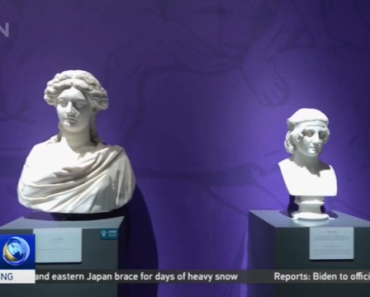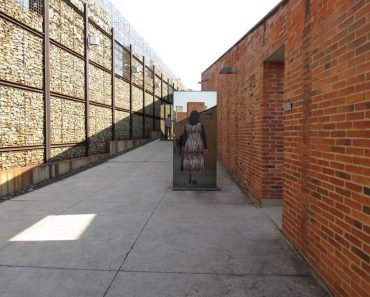By Clara Burghelea
The healing powers of poetry is a sieve through which Ange Mlinko pours bitterness and disunity, cosmic and personal.
Foxglovewise by Ange Mlinko. Farrar, Straus and Giroux, pp 112, $27

The latest volume of poetry from Ange Mlinko, the author of several well-received books of poetry as well as the Randall Jarrell Award for Criticism, probes the tensions between presence and loss as it explores her personal journey of coming to terms with depletion and its aftermath. Along the way, Foxglovewise limns various kinds of presence, paying particular attention to the power of habitation, from physical spaces to what “it’s not on the maps”. The locations range from Tarpon Springs, Florida and the “city of light” to Los Angeles and Blackford Hill, Scotland, East Texas and Crete in the Greek Islands.
The collection begins with a moment of revelation — “when rain like a jeweler taps / gingerly into the crystal of a water crocus” — and ends with a philosophical inquiry: “Are we bound / to the soil we’re born or consigned to? / Or do we root in the air like an epiphyte?”. Concerns with identity and belonging haunt the collection, alongside probes of nature, family ties, and mythology.
The poem that gives the collection its title asks the reader to pay attention to how color – “the electric gold” gorse — and sound — “foxgloves electric with bees” – mix to create a sensuous vision of Blackford Hill. At the same time, the speaker humorously contemplates what might be an unwise decision to “stray off the map,” to move off in what may prove to be a threatening direction. The poem examines the collision between beauty and danger, questioning conventional ideas about the delicate interaction between humans and nature.
Other poems, such as “Elegy and Bourbon,” also engage the reader’s senses through chromatic and sonic references. Each of the poem’s spatial glimpses is followed by an intimate reflection:
Isn’t porcelain made of the finest clay?
But piece by piece a family goes to pot.
I pictured myself
a shard – earthenware to mislay
The metaphor of the porcelain illustrates both the beauty and frailty of family bonds. The speaker, “a shard” contemplates her own sense of loss, as well as underlining her need to belong.
The speaker in “The Iliad in a Scottish Cemetery” listens to Homer’s book while walking the grounds of a natural resting place that resembles a “culinary garden”. Eyes and ears strive to reconcile extremes, attempting to embrace distant and immediate sounds, names, and objects:
I’m in two foreign countries at once, by turn
testing on my tongue the umami of these sounds
iron-laced water like blood-anointed spear tips
and the tangy granite in the skirling burn.
The speaker grapples with her attraction to vastly different cultures and places. She yearns for the pleasures of savoring both, and this desire inspires the exquisite musical quality of the stanza. For example, “skirling burn” is a proper place name — it is a valley in the Scottish Borders Council area that contains a tributary to the Spittal Burn. Its use here unifies fact and emotion.
The importance of paying attention to details, relying on the alertness of the senses, are reprised throughout the entire collection. In “The Empire of Flora,” the speaker is being tutored by her friend Claire on landscaping, flowers, and Greek mythology. In order to take everything in, one is instructed to have “the ear at right angles to the eye.” This may be Mlinko’s ideal for awareness, a synergy of body and mind.
There are literary allusions as well. In “Chekhov in the Gulf of Mexico,” the poet documents a Saturday night at a resort, carefully observing people and things:
The Saturday night
is uniquely music-less, the usual spate
of sounds drowned out – rough
and slick, proclivities and druthers.
The place is populated by parents, children, workers, a divorcée, baby iguanas, jellyfish, an audience that is collectively enjoying water and sand. The speaker is comfortably part of this world while self-consciously reflecting on the sources of its energy.
In terms of form, the poet explores the potential of the Petrarchan sonnet to create a sense of emotional depth. In “To My Guitarist,” the speaker begins the octave with an interrogation of particular objects of affection, generally creatures with shells and thick skin. The title’s personal quality is echoed in the sestet, when the speaker’s gaze moves from a memory of the “turtle hospital” to the guitarist’s “fretting hand,” “the tenderness each callused tip affirms”.
In another sonnet, “The Open C”, an invocation of Shakespeare’s Prospero and Ariel points the presence of magic and transformation, though once again Mlinko emphasizes a tense relationship between nature and the presence of humanity:
You stare into it for days, all your life,
as if waiting for a curtain to rise. As if
a production of Ariel and Prospero
were pending in the ocean’s void,
the amphitheater of the asteroid.
There’s only shocked quartz below.
Where sky and sea are never parted—
there the mass extinction started.
The metaphor “the amphitheater of the asteroid” echoes “the ocean’s void” in the previous line, evoking a sublime vastness. Once again, the human presence is no match for the wonderous grandeur of sky, sea, and earth, but serves as an impeding presence, which is responsible for “the mass extinction.”
In contrast, elsewhere nature is a source of abundance, its gifts including bringing family members together, its tastes and beauty triggering the speaker’s reminiscences about vivid moments and encounters in her life. Poems such as “Potatoes and Pomegranates” and “Radishes” are dramatic recollections in which foods, such as potatoes and radishes, tap into memories and aid mourning — for the death of the speaker’s mother, father, and grandmother. Food becomes a way (“pomme de terror”) in which the speaker pays homage to those who are absent, and takes a measure of other lives.
Foxglovewise‘s interest in presence and absence often takes the form of confronting the past, working through griefs that resurface in the present, the healing powers of poetry a sieve through which Mlinko pours bitterness and disunity, cosmic and personal.
Clara Burghelea published two poetry collections: The Flavor of the Other (Dos Madres Press 2020) and Praise the Unburied (Chaffinch Press 2021). Her poems and translations have been published in Gulf Coast Journal, Delos, The Los Angeles Review, and elsewhere. She is the Review Editor of Ezra, An Online Journal of Translation.







